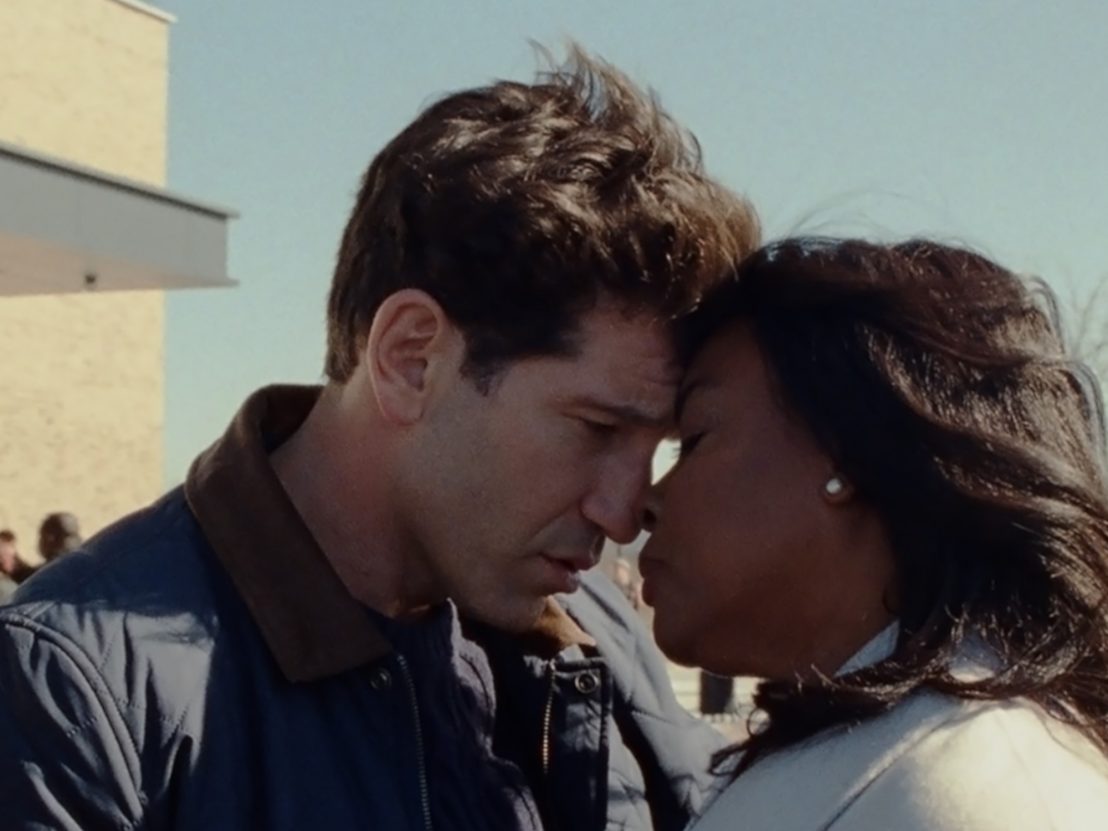
Ava DuVernay adapts Isabel Wilkerson's 2020 non-fiction book 'Caste: The Origin of Our Discontents' with somewhat mixed results, interweaving Wilkerson's personal story into one of systemic subjugation.
Published in August 2020, barely three months after the murder of George Floyd by the Minneapolis police, Isabel Wilkerson’s ‘Caste: The Origin of Our Discontents’ found immediate resonance against a context of ongoing Black Lives Matter protests, suddenly mainstream abolitionist discourse, and the looming possibility of a re-elected Trump government. Now, three years after its publication, Wilkerson’s study of the entanglement between American racial politics and caste systems finds a strikingly singular new expression in Ava DuVernay’s adaptation, which dramatises not only Wilkerson’s book, but the process of research and writing that first brought it to life.
Through this collapse in intimate and political narrative, Duvernay crafts from Origin a work of sweeping, unnerving scope, drawing together multiple threads and timelines – the sickening killing of Trayvon Martin, the horrors of the Jim Crow South, the swift rising tide of Weimar fascism, the violent dehumanisation of the Indian caste system – into a complex and polyphonic portrait of engineered oppression. “They witnessed events that would change the world,” Wilkerson (a commanding performance by previous DuVernay collaborator Aunjanue Ellis-Taylor) says of Black anthropologists Allison and Elizabeth Davis, whose undercover research in 1930s Mississippi threads through Wilkerson’s book and the dramatic narrative of the film. Yet the same could be said of DuVernay herself; her work has always positioned itself at tipping points in history, excavating significant events with granular attention only to pull back and reveal a larger, haunted picture, more sprawling than we could have ever imagined.
In this light, Origin is a hugely ambitious political and narrative feat, illuminating millennia of oppressive systems through the lens of one woman writing against a personal backdrop of loss and grief. It largely succeeds, thanks in part to a moving visual language that articulates the interlayering of political strata that Wilkerson was so arrested by. In one scene, a recurring flashback to a German man who fell in love with a Jewish woman in 1930s Germany calcifies into a monochrome still that becomes a presentation slide, against which Wilkerson delivers a lecture. Cotton fields bifurcate the screen, echoing the mirrored monuments of the Berlin Holocaust Memorial that later encase Wilkerson’s figure. These are all, Origin tells us, the same story, draped in different costumes.
There is an immense political complexity to this argument of connective tissue that is both fortified and undermined by a narrative and cinematic insistence on raw emotion. Wilkerson’s own world-ending loss – both her husband Brett (a charming Jon Bernthal) and mother die at the start of the film – bleeds throughout, an aching intimacy that marries and grounds the individual and collective grief that her thesis contends with.
Yet DuVernay increasingly slips into sentimentality as the film continues, with a concluding segment that ties its bows too neatly – histrionic score, slow motion flashbacks – in the light of such difficult, unyielding ideas. “I don’t write questions. I write answers,” Wilkerson tells her editor when she is first approached to write about America’s fraught racial fault lines. Yet Origin is best when it rejects the latter and embraces the former, refusing the comfort that fictionalised narrative can give.
Published 6 Sep 2023

For all its ambition and artistic vision, Ava DuVernay’s glossy YA fairy tale fails to deliver.

The director’s dramatisation of the Central Park jogger case is a vital true crime chronicle.